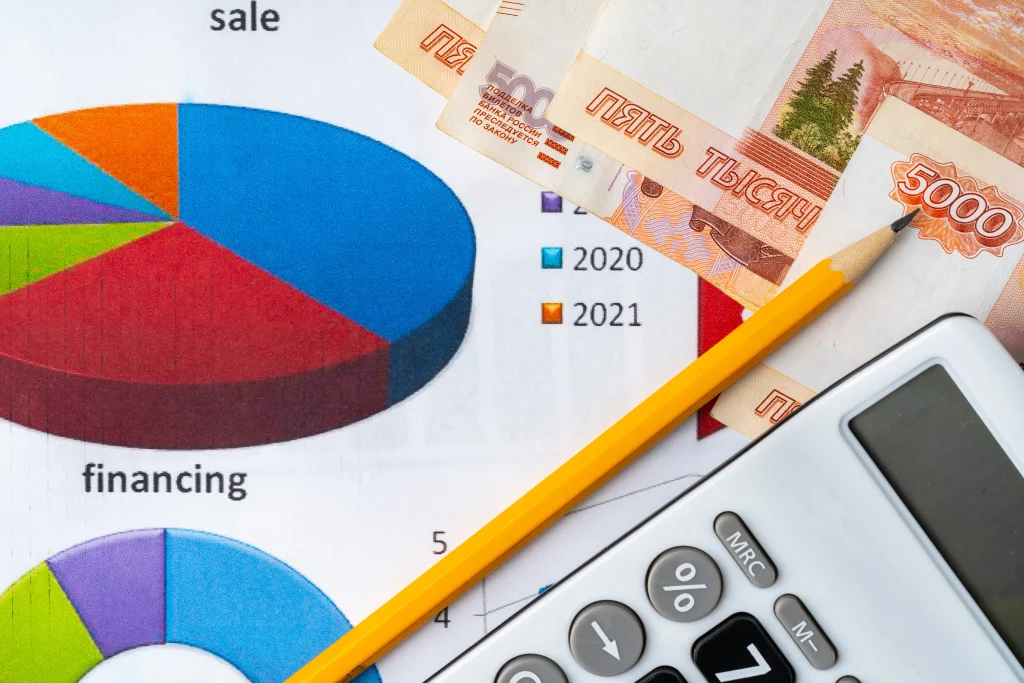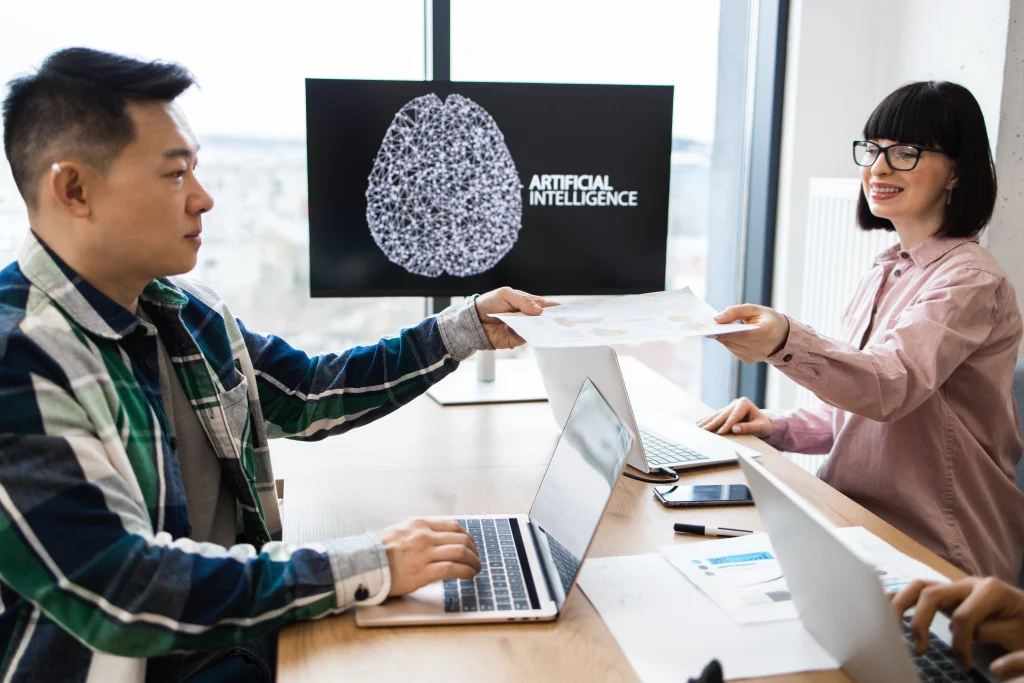Work is changing in many fields. New forms of artificial intelligence now assist people in their daily duties. They assist with calculations, record-keeping, and the comprehension of large amounts of information. Yet human intelligence remains at the center of all meaningful labour, for it offers judgment, reason, and understanding, which no machine can yet match.
General intelligence belongs to people. It allows us to learn, to reflect, and to decide. Artificial intelligence follows patterns in data. It performs the task it was made for, but it does not grasp meaning as a person does.
Even so, AI now appears in many trades. It supports writing, medical work, finance, product planning, and other forms of knowledge-based labour. This brings new questions about the future of work and the place of human skill.
Human Intelligence vs. Artificial Intelligence
Human intelligence covers many abilities. It helps us understand others, solve unfamiliar problems, and use sound judgment. Machines, however, carry out narrow tasks. They read images, process long records, or make predictions, but they cannot change their purpose without further training.
Although many speak of a future form of general artificial intelligence, such a system has not yet been achieved. Present AI tools remain limited to the work they were built for.
Today, AI often stands beside workers as a helper. It performs the heavy tasks of sorting, counting, or reviewing records. People, in turn, focus on meaning, intent, and interpretation.
Rising Use of Artificial Intelligence Across Industries
The use of AI grows each year. Studies show that many workers in the United States now use such tools at least a few times a year. The increase is greatest in office work, where duties often involve writing, reviewing information, or working with figures.
Technology firms use AI the most. Finance and professional services follow. Fields that require handcraft, care, or physical labour change more slowly, for these depend on human presence and understanding.
Artificial Intelligence in Healthcare

Use of Artificial Intelligence in Clinical Work
Healthcare welcomes AI with both hope and caution. The work concerns human life, so each new tool must be judged with care. Even so, AI now helps with reading medical images, reviewing patient records, and guiding doctors toward early signs of illness.
AI tools study scans such as X-rays, CT images, and MRIs. They notice faint marks that a busy doctor might overlook. They serve as a second set of eyes, bringing attention to small details that may hold meaning. Doctors still make the final judgment, for only they can weigh the full story of the patient and the illness.
AI also helps with record-keeping. It listens during a visit and prepares a first draft of the doctor’s notes. This spares many hours once spent typing and reviewing forms. Hospitals that use such tools report less strain on their staff.
Influence on Work and Decision-Making
AI lightens the heavy load of paperwork. Doctors and nurses gain more hours for direct care. They may speak more with patients, review treatment plans with greater calm, and catch matters that would have been rushed in the past.
AI tools offer early warnings when a patient’s condition may worsen. They watch changes in heartbeat, breathing, and lab results. When a number begins to drift, the tool alerts the care team. This gives doctors time to intervene before harm grows.
Yet final decisions rest with the doctor, not the machine. The tool brings forth signs, but it does not understand the human story behind them. Doctors must weigh the patient’s history, wishes, and present state. This balance between tool and healer now shapes much of healthcare’s future.
Changes in Roles and Needed Skills
AI changes the daily duties of many in the field. Radiologists now spend less time scanning each image and more time explaining results and guiding treatment. Nurses use tools that help with scheduling, reminders, and routine checks. Meanwhile, those who manage hospital records now work with AI that sorts documents and codes them for insurance.
Some roles shrink, such as transcription and simple record-coding, for these are now handled by AI. Yet other roles grow. Hospitals now hire informatics specialists, data stewards, and advisers who test and supervise AI tools. They ensure the tools remain safe and fair for all patients.
Doctors and nurses must also learn how to read AI outputs with care. They must know when the tool is likely correct and when it may overlook special cases. This requires steady judgment and a calm understanding of risk.
What the Years Ahead May Bring
In time, AI may support care long before a person enters the hospital. It may draw from records, habits, and past illnesses to warn of early disease. It may guide people toward changes that keep them well rather than waiting until illness appears.
Wearable devices may send steady reports of heart rhythm, blood sugar, or breathing. AI may sort this flow of data and alert a nurse when something is amiss. Care may shift from the hospital to the home.
Yet as these tools spread, the need for fairness, oversight, and patient dignity grows. Hospitals must watch for bias in the tools. They must ensure that all people, regardless of background, benefit equally.
In short, AI will not replace the healer. It will stand beside them, lightening their load and sharpening their sight, while human compassion remains at the center of care.
Artificial Intelligence in Finance

Use of AI in Financial Work
The finance field turns to AI for calculation, forecasting, and the study of markets. Banks and investment firms use AI to read large amounts of data and prepare forecasts. These tools note patterns in price, news, and sentiment that move markets.
In trading, some firms allow AI to guide buying and selling. The tools act quickly, for markets shift in moments. This reduces the place of traditional floor traders and increases the need for analysts and data workers.
Banking also uses AI for loan decisions, fraud detection, and customer support. When a transaction seems unusual, the system alerts staff. When a customer writes with a simple request, an AI tool answers at once, leaving more complex matters to human workers.
Influence on Productivity and Judgment
AI shortens many tasks in finance. It reviews documents, sorts statements, and prepares summaries. Analysts spend less time gathering data and more time judging what it means. Managers gain faster insight into risks and opportunities.
Yet AI must be watched with care. Markets change for reasons that numbers cannot fully capture. Human judgment remains necessary, for the system may misread unexpected events. Workers must therefore understand when to trust the tool and when to question it.
Changes in Roles and Needed Skills
As AI handles simple calculations and screening, firms hire fewer workers for routine roles. Instead, they seek those who can interpret results, check for errors, and guide decisions.
New roles appear, such as model stewards, risk officers for AI behaviour, and writers who create clear rules for the system to follow. Workers must now understand both the craft of finance and the limits of the tools that support it.
The Path Ahead
Some believe AI will grow strong enough to manage larger parts of financial planning or wealth management. But even then, people will remain responsible for trust, ethics, and final judgment.
The field will likely see fewer routine roles but a greater need for thoughtful, steady oversight. The new era will belong to those who use the tools without yielding their own judgment.
Artificial Intelligence in Product Work

1. Use of AI in Product Planning
Product work involves understanding users, shaping ideas, and guiding teams. AI now assists with each step. It reviews user behaviour, prepares summaries of concerns, and suggests areas for improvement.
Teams use AI to draft early concepts, prepare notes, and explore options. It shortens the first steps of planning, giving workers more time to weigh choices.
2. Effect on Daily Duties
AI brings patterns to light that may escape the human eye. A team may learn which features people use most, where they hesitate, or where they abandon the service. This helps them shape the next version of the product.
Yet the final direction still belongs to the team, not the system. AI cannot sense the broader purpose of the product or the values behind it. It offers signs, not wisdom.
4. Future Course
As AI grows, product teams may become smaller, for the tool handles early drafts and analysis. Workers will focus more on meaning, usability, and the deeper aims of the product.
Artificial Intelligence in Marketing

The Use of AI in Marketing Work
Marketing relies on understanding people. AI now studies behaviour, prepares audience groups, and tests which messages reach people more effectively. It sorts through large pools of customer data and brings back clear patterns.
It also writes early drafts of letters, ads, and descriptions. Workers then refine these drafts to suit the voice and values of the firm.
It’s Influence on Strategy and Labour
AI helps marketers see which channels offer the best results. It also predicts how people may respond to changes in price, design, or placement. This speeds the work and reduces guesswork.
However, the heart of marketing still rests on human understanding. People respond to feeling, trust, and story — things a machine cannot shape on its own.
Shared Themes Across All Fields
1. New Skills
All fields now require some knowledge of AI. Workers must know how to read the tool’s results, how to notice errors, and how to keep the final judgment for themselves. Calm thinking, clarity, and moral sense remain essential.
2. Changing Roles
Routine work decreases. Roles involving oversight, interpretation, and human connection increase. New roles arise to watch, test, and improve AI systems.
3. Ethical Care
Firms must watch for unfairness in AI tools. They must uphold transparency and allow workers and customers to understand how decisions are made.
Artificial intelligence now stands beside workers in many trades.
It sorts records, reads images, reviews markets, and prepares early drafts of work once done by hand. Yet it does not replace the heart of human judgement.
The future will belong to those who use these tools wisely while keeping human reason, fairness, and understanding at the center of their craft. AI may lighten the load, but people must still guide the course.
If your firm seeks steady and capable technical talent, you may turn to Gini Talent for guidance and support. Their team can help you find workers who bring sound judgment and true skill to your projects.




